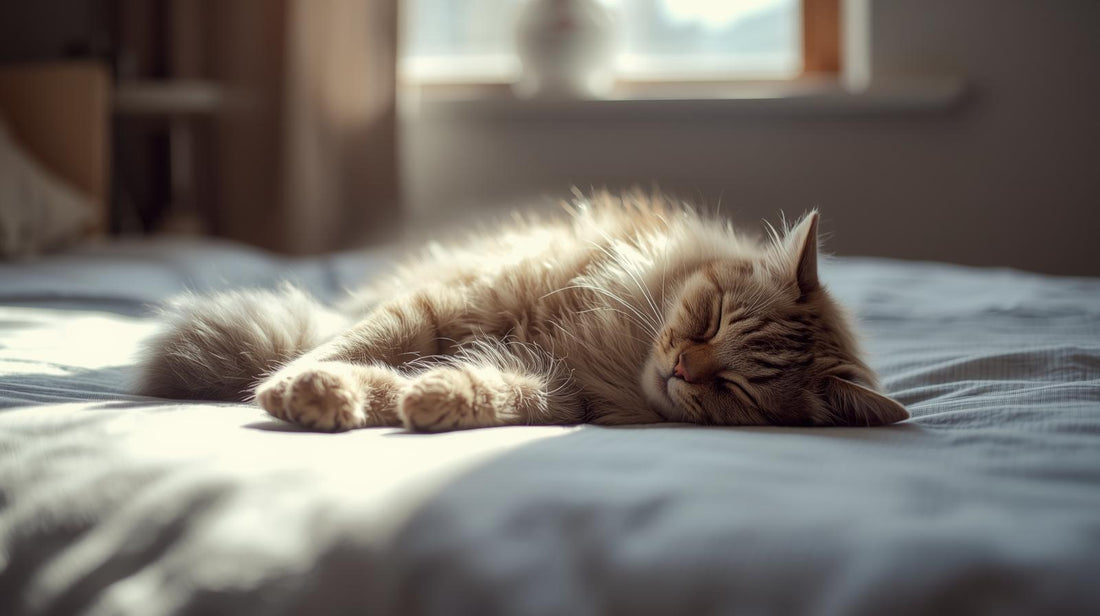
Do Cats Experience Bad Dreams? Key Signs, Reasons, and Helpful Tips
Can Cats Dream?
Yes — cats definitely dream! During the deep stages of sleep known as REM, their eyes twitch beneath closed lids, and fleeting movements—like paw twitches or little meows—may indicate they’re chasing toys or dreaming of dinner.
Kittens dream more frequently than adult cats because their brains are rapidly developing and processing new experiences.
Cats might usually have pleasant dreams filled with play and treats — but they’re also capable of having nightmares.
What Do Nightmares Look Like in Cats?
You might suspect your cat had a bad dream if, during sleep, they:
- Twitch vigorously (almost as if they're running or being chased)
- Growl, hiss, or breathe rapidly
- Jerk their paws as if reacting to something scary
After waking, look out for signs like:
- A startled or disoriented awakening
- Seeking closeness and comfort
- Hiding in a safe spot or displaying a nervous demeanour
While small movements during sleep are normal, persistent or intense reactions can hint at a nightmare.
What Might Trigger Bad Dreams in Cats?
Several factors can contribute:
-
Stressful Stimuli
Anxiety from loud noises, sudden changes at home, or disruptions in routine can carry into dreams. -
Interrupted Sleep
Being frequently disturbed during rest can lead to fragmented, uneasy dreaming. -
Traumatic Memories
Rescue cats or those with past adversities may relive stressful experiences while sleeping. -
Health Issues
Illness or pain may provoke restless sleep and unsettling dreams. -
Uncomfortable Sleep Spaces
Beds that are too hard, noisy, overly warm, or located in chaotic areas can hinder peaceful rest.
Making Dreamland Better for Your Cat
If you suspect your cat experienced a nightmare, here are gentle strategies to soothe them:
-
Soft Comfort
Speak quietly and allow your cat to approach you for reassurance. Sudden interactions may frighten them further. -
Cozy, Secure Sleeping Place
Provide a plush, snug bed—like those offered by us—that makes your cat feel sheltered and safe. -
Soothing Pre-Sleep Rituals
Calm brushing, quiet play, or placing a soft blanket near their sleep area can ease them into a more peaceful rest. -
Keep the Environment Calm
Minimize noise and maintain a comfortable routine to reduce nighttime disturbances. -
Consult a Veterinarian
If nightmares are frequent or your cat appears anxious, seek veterinary advice to rule out medical or behavioral causes
Quick FAQ
|
Question |
Answer |
|
Should I wake my cat from a bad dream? |
Usually no—it's better to stay calm and let them wake naturally unless they seem extremely distressed. |
|
How can I tell if it was a nightmare? |
Aggressive sleep sounds, intense twitching, or visible distress upon waking are strong clues. |
|
How to prevent bad dreams? |
Provide comfort, maintain routine, minimize stress, and ensure their sleep space is relaxing and safe. |
Final Thoughts
Cats do dream—and occasionally they may have nightmares. Being attentive to their sleep behaviors lets you offer comfort when they need it. A serene sleep setup, quiet routines, and gentle reassurance can help your feline friend find peace in sweet dreams.
